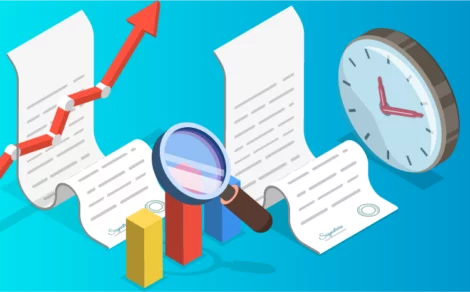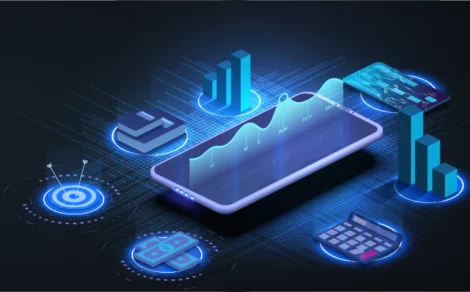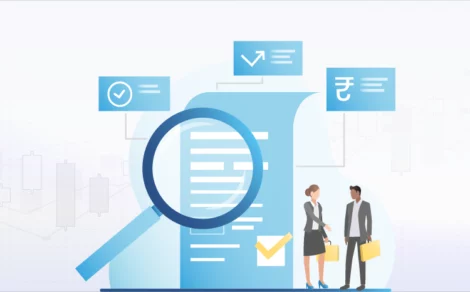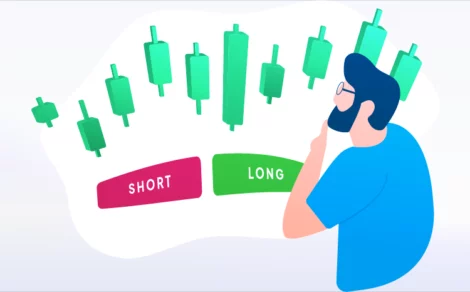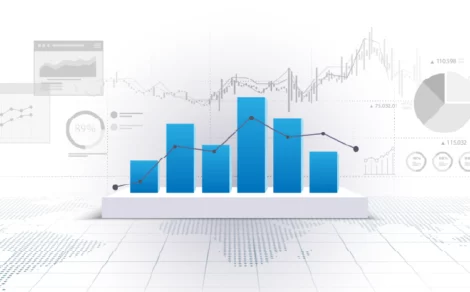Equity delivery charges are the brokerage fees levied by a stockbroker when you purchase shares to hold in your Demat account beyond the same trading day.
Toruscope » Online Trading » Equity Delivery Meaning: What It Is & How It Works in Stock Trading
Buying stocks via a Demat account has streamlined the share purchasing process. However, some things remain the same. The equity delivery takes some time once a stock is purchased.
Equity delivery is a popular trading approach in the Indian stock market, where investors hold stocks for a longer period rather than selling them on the same day. As the name suggests, it involves the actual delivery of shares, typically completed after the T+2 settlement cycle.
In this blog, we are going to discuss the concept of equity delivery, its working process, benefits and more.
What Do You Mean by Equity Delivery
Equity delivery simply means delivery of the shares in your Demat account. When you buy a stock in the share market, you pay the whole amount of your investment and then you receive it in your Demat account in some time. Receiving this delivery is very crucial for long-term investments via equity delivery trading.
This method is ideal for long-term investors, as it allows you to own and hold the stocks over time. Equity delivery is the opposite of intraday trading, where stocks are bought and sold within the same trading day. In intraday trades, shares are not delivered to your account, and you avoid delivery charges but you also do not truly own the stock.
When you buy a share from your Demat account, it immediately shows that share in your holdings section. However, the ownership process is not complete at that time. It will be complete once you receive the delivery of that stock in your Demat account.
Once you get the delivery of your purchased stock, you can keep it as long as you want and sell it anytime, when you see favourable conditions to sell the shares for maximum profitability.
What Do You Mean by Free Equity Delivery?
Free equity delivery means purchasing, receiving and holding your shares without having to pay brokerage fees or delivery fees. Some brokers offer this benefit to investors for promotional purposes.
You can utilise this opportunity to make profits from long-term trades while saving the delivery costs that you would have to pay in normal circumstances.
How Does Equity Delivery Work in The Stock Market?
The equity delivery process works in a T+2 day settlement period. Once you purchase a stock online, your transaction is not completed immediately. It ends with the delivery of your purchased stock. Your transaction will conclude within T+2 days after the trading day.
For example, if you purchase shares on a Monday, they will be delivered to your Demat account by Wednesday, assuming there are no holidays in between.
Advantages of Equity Delivery in Stock Transactions
Now that we know what is equity delivery, we must know that it has some unique benefits. Here are some key benefits of this type of transaction:
-
Loan Availability
You can avail of loans from banks based on your shareholdings. This allows you to get instant liquid funds without having to break your investments.
-
Long-Term Holdings
You can hold on to your shares for as long as you want. This provides you with the flexibility to sell your shares in the most profitable situation.
-
Profit From Dividends
By holding stocks over time, you may receive dividends. A portion of the company’s profits is distributed to shareholders.
-
Opportunity For Bonus Shares
Companies may issue bonus shares to existing shareholders during strong financial periods. Equity delivery ensures you are eligible to receive them.
-
Stable Growth
Share investment via equity delivery promotes long-term shareholdings. Long-term shares are generally more stable and provide steady income.
Final Thoughts
With equity delivery or delivery trading, you can get the flexibility to hold your shares for as long as you like, making it ideal for long-term wealth creation. By taking the time to analyse the market and invest wisely, you can position yourself for stable growth and improved profitability over time.
Ready to start your delivery trading journey? Torus Digital offers a convenient 3-in-1 trading and savings account, allowing you to invest in stocks and manage your savings, all in one place. Simplify your finances and make your money work smarter with Torus.
Frequently Asked Questions
Equity delivery involves holding stocks for more than one day, aiming for long-term growth. Intraday trading involves buying and selling stocks within the same day to profit from short-term price movements.
If you seek quick gains and can manage risk, intraday may suit you. Equity delivery is better for long-term investors who want portfolio growth, dividends, and lower risk.
Equity delivery refers to buying shares and holding them in your Demat account for more than a day. These shares remain yours until you choose to sell them.
Yes, long-term capital gains (LTCG) on equity delivery (for holding periods over 12 months) are taxed at 10% beyond ₹1 lakh, offering favorable treatment compared to short-term gains.
Related Reads
What is Slippage in Trading? Meaning, Causes & Impact Explained
In trading, timing and precision often define success. However, even when a trader believes...
By: torus
- 7 mins
- 01.Jul.2025
- 4(1)
- 97
What is an Option Contract?
Imagine having the flexibility to buy or sell shares at a fixed price, no...
By: torus
- 7 mins
- 01.Jul.2025
- 0(0)
- 43
Types of Financial Instruments You Should Know Before Investing
Before investing funds in any market, it is essential to understand what financial instruments...
By: torus
- 7 mins
- 01.Jul.2025
- 0(0)
- 39
What are Contracts for Difference (CFD)?
Contracts for Difference, commonly known as CFDs, are financial instruments that allow traders to...
By: torus
- 9 mins
- 01.Jul.2025
- 0(0)
- 39
Difference between Short Position & Long Position
Understanding the concepts of short and long positions is essential for anyone interested in...
By: torus
- 8 mins
- 01.Jul.2025
- 0(0)
- 38
Essential Trading Terminologies You Need to Know
Trading in financial markets opens a world full of opportunities. For many first-time investors,...
By: torus
- 8 mins
- 01.Jul.2025
- 0(0)
- 47
Disclaimer: The content provided in this blog is for informational purposes only and does not constitute financial advice or recommendations. The content may be subject to change and revision. Readers are encouraged to conduct their own research and consult with a qualified financial advisor before making any investment decisions. Torus Digital and its affiliates takes no guarantees whatsoever as to its completeness, correctness or accuracy since these details may be acquired from third party and we will not be responsible for any direct or indirect losses or liabilities incurred from actions taken based on the information provided herein. For more details, please visit www.torusdigital.com.
Tenneco Clean Air IPO Listing: Strong Market Debut with 27% Premium
Tenneco Clean Air India Ltd made a confident entrance into the public markets on...
By: torus
- 5 mins
- 19.Nov.2025
-
3.7(6)
-
423
Stock to Buy Today: November 19, 2025
The Indian stock market witnessed a mild decline on November 18, 2025, ending a...
By: torus
- 4 mins
- 19.Nov.2025
-
4.3(3)
-
423
Mirae Asset Infrastructure Fund NFO: A Sector-Focused Bet on India’s Growth
Mirae Asset Mutual Fund has launched a new equity scheme — Mirae Asset Infrastructure...
By: torus
- 4 mins
- 18.Nov.2025
-
4.3(6)
-
423
Emmvee Photovoltaic IPO: Shares Make Muted Market Debut, List Flat At ₹217
Emmvee Photovoltaic Power made a muted debut on 18 November 2025, listing flat at...
By: torus
- 3 mins
- 18.Nov.2025
-
3.7(6)
-
423

